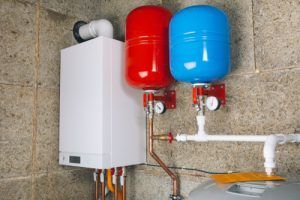Dealing with the Frequently Encountered Water Heater Emergencies
Dealing with the Frequently Encountered Water Heater Emergencies
Blog Article
How do you feel in relation to The Importance of Water Heater Maintenance?

A hot water heater is one of the most important standard home appliances that can be found in a residence. With hot water heater, you don't require to experience the stress and anxiety of home heating water manually every single time there is a need to wash, do the laundry, or the dishes. Nevertheless, there is constantly a possibility that your water heater would break down similar to most mechanical devices.
It is essential to note any little malfunction and tackle it swiftly before points get out of hand. Most times, your hot water heater begins to malfunction when there is a build-up of sediments as a result of continual use. As a preventative measure, periodic flushing of your water heater is recommended to prevent sediment buildup and stop useful failure.
Common water heater emergency situations as well as exactly how to manage them
Too little hot water
It might be that the water heater can't sustain the hot water demand for your house. You could update your water heating system to one with a bigger capability.
Rising and fall water temperature level.
Your water heating system can start producing water of different temperatures generally ice scalding or chilly warm. There could be a requirement to change either the thermostat or the heating device of your water heating unit.
Dripping water heater container.
In this scenario, you should turn off your water heating system, allow it to cool down, and very carefully look for the resource of the trouble. At times, all you need to do is to tighten a few screws or pipeline connections in cases of minor leaks. If this does not function and also the leak persists, you could need to use the solutions of a professional for a proper substitute.
Tarnished or smelly water
When this happens, you require to recognize if the issue is from the storage tank or the water source. If there is no amusing scent when you run cool water, then you are particular that it is your water heating system that is damaged. The stinky water can be caused by corrosion or the accumulation of bacteria or debris in the water heater tank.
Final thought
Some house owners disregard little caution and minor faults in their water heater unit. This just results in additional damages and also a possible total failure of your home appliance. You must take care of your hot water heater faults as quickly as they come near prevent more expenditures and unnecessary emergency problems.
With water heating units, you do not require to go via the tension of heating water by hand every time there is a requirement to take a bath, do the washing, or the meals. It might be that the water heater can't support the warm water need for your home. Your water heating unit could start generating water of different temperatures normally ice hot or cold hot. If there is no amusing scent when you run cold water, after that you are specific that it is your water heating unit that is defective. The stinky water can be created by corrosion or the accumulation of germs or sediments in the water heating unit container.
Common Water Heater Issues and What You Should Do
What Type of Water Heater Do You Have?
Before we begin it’s first important that you identify the type of water heater you have on your property. There are two main types of water heaters out there: conventional and high efficiency.
Both of these types of products typically use either gas or electricity to heat power. There are also solar water heaters that use a thermal collector on the roof or yard to heat the water.
While these models are not as common, they can cut heating costs in half. In this article, we will focus on conventional and high efficiency.
How Do My Electric and Gas Water Heater Work?
Though they look similar, electric and gas water heaters work very differently. It’s important to know their basic function because often problems can be specific to the heating source.
In the electric model, a thermostat on the side of the machine detects the temperature of the water in the tank. When the temperature needs to rise electricity flows to a heating element suspended in the water.
Gas models also use a thermostat device — typically with a mercury sensor at the tip and an additional sensor called a thermocouple. The thermocouple detects whether the pilot light is on and controls the flow of gas.
When the thermostat drops below the appropriate level gas is released which becomes ignited by the pilot light. The flame heats the bottom of the water tank which causes hot water to rise and cold water to drop.
This natural circulation continues until the water reaches the desired temperature. Then, the thermostat triggers the gas control valve to shut off the flow of gas.
What Are the Most Common Issues and How Do You Fix Them?
https://happyhiller.com/blog/common-water-heater-issues-and-what-you-should-do/

Do you really like more info about Is Your Water Heater Leaking?? Make a remark directly below. We will be pleased to hear your feelings about this article. In hopes to see you back again later on. Remember to take the opportunity to distribute this page if you enjoyed reading it. Thank you for going through it.
Schedule Appointment Now Report this page